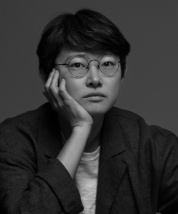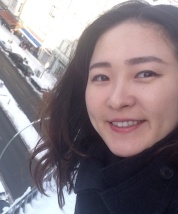Lucky, Apartment
Seonwoo and Heeseo are a lesbian couple living in an apartment they bought by putting everything together. But as an unpleasant odor comes from downstairs, a war of nerves between the two begins.
Lesbian couple Seonwoo and Heeseo dream of a stable living environment and buy a small apartment, which they’ve put everything for. But when Seonwoo loses her job and injures her leg in the recession, their relationship begins to sour while Heeseo is sorely responsible for paying the mortgage and interest. While staying at home, Seonwoo tries to find a job, but it’s not easy. Her stress level reaches a fever pitch when a foul odor starts to emanate from downstairs. They are shocked to discover that a woman downstairs has died in solitude. When the smell doesn’t go away even after the body is gone, Heeseo is also stressed, and Seonwoo tries to help her. However, Seonwoo’s behavior only causes chaos in the apartment. Heeseo doesn’t understand Seonwoo’s actions and they have a big fight. Will the couple be able to resolve their problems and return to a happy life?
Lucky, Apartment is based on a real-life conflict between a longtime same-sex couple and the class differences within the couple over the ‘home’ they are creating. The film attempts to portray the contradictions and hatred in Korean society in a dense and realistic way. The protagonists face the death of a woman downstairs, in an apartment, they moved into with dreams of good fortune and a stable place, but they are confronted with the deeply internalized hatred of minorities in Korean society. Previously a conflict-avoidant couple, they eventually deal with the issues they have been ignoring and grow to the next level. Through this, the film aims to show that attention and solidarity for others can sometimes lead to changes in one’s own life.


(54999) 2F, JEONJU Cine Complex, 22, Jeonjugaeksa 3-gil, Wansan-gu, Jeonju-si, Jeonbuk-do, Republic of Korea
T. +82 (0)63 288 5433 F. +82 (0)63 288 5411
(04031) 4F, 16, Yanghwa-ro 15-gil, Mapo-gu, Seoul, Republic of Korea
T. +82 (0)2 2285 0562 F. +82 (0)2 2285 0560
(54999) JEONJU Cine Complex, 22, Jeonjugaeksa 3-gil, Wansan-gu, Jeonju-si, Jeonbuk-do, Republic of Korea
T. +82 (0)63 231 3377
Privacy PolicyTerms of service
COPYRIGHT © JEONJU International Film Festival ALL RIGHTS RESERVED (M2)